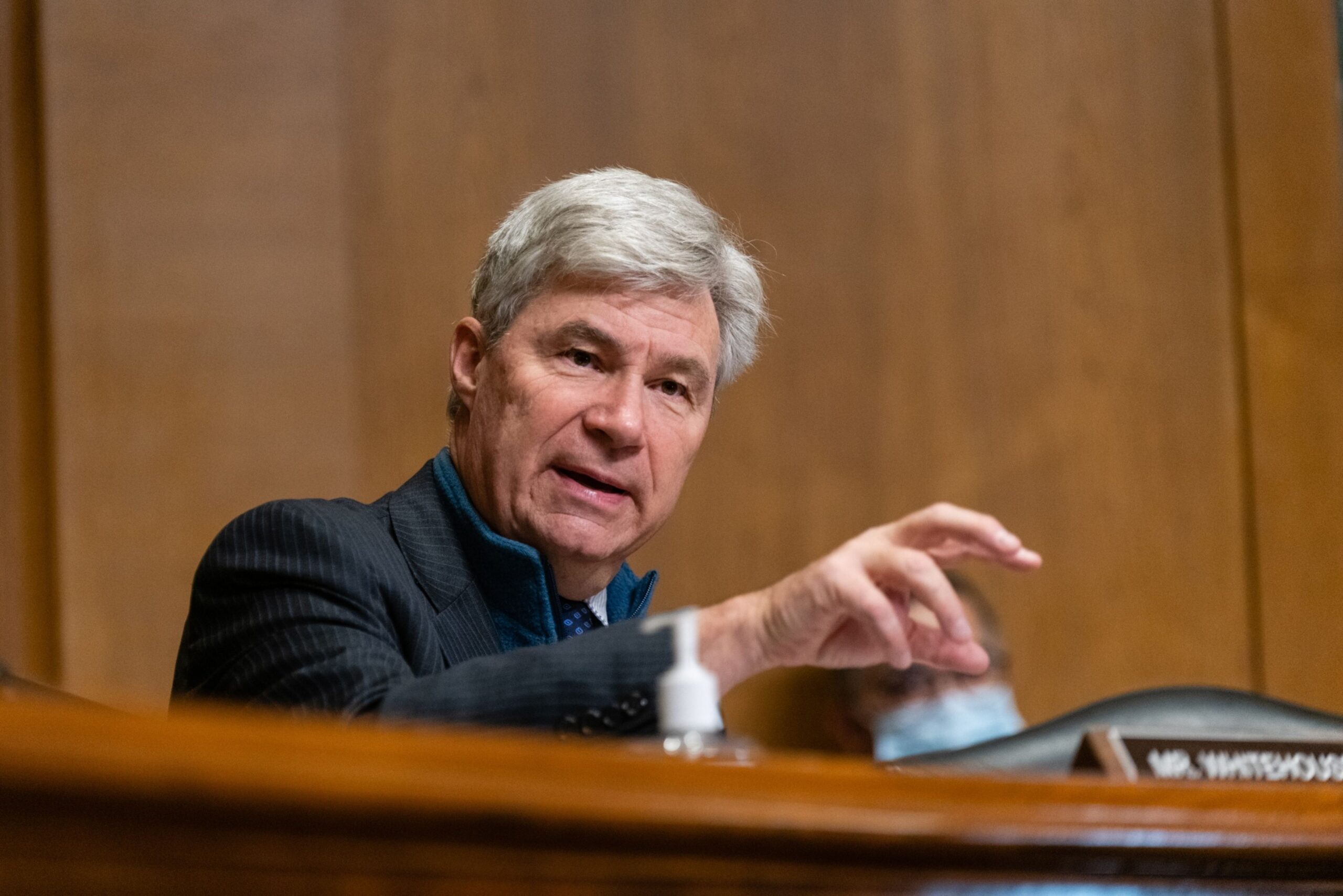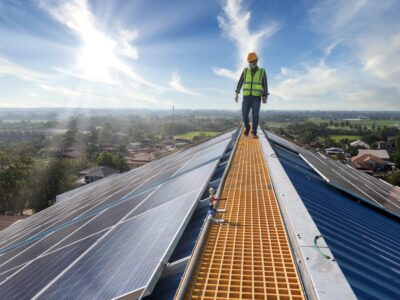(Bloomberg) —
Last week, the White House hosted a meeting of scientists and other experts on the theme of climate delay: a rhetorical successor to outright denial of climate science, using tactics meant to stall action or dismiss clean technologies. The meeting was organized at the urging of Rhode Island Senator Sheldon Whitehouse (who did not attend himself), a longtime and vocal critic of the fossil-fuel industry’s contribution to climate change.
Hours after the meeting, Russia invaded Ukraine, adding more instability to U.S. reliance on foreign oil and gas. “In America’s national security and economic interests, we must free consumers from dangerous dependence on volatile oil and gas markets, by shifting to secure renewables,” Whitehouse, a Democrat, tweeted yesterday. Back in June, Whitehouse introduced legislation that would require large corporations responsible for greenhouse-gas emissions to pay fees pegged to estimates of how much damage the emissions might cause.
Bloomberg Green caught up with the senator to ask him about climate misinformation, energy security and the prospects of President Joe Biden’s moribund climate plan—which Biden is expected to try to reanimate tonight in his State of the Union address.
Congress has hosted similar climate hearings before. Why bring experts to the White House, too?
The fact that they got a chance to go to the White House and tell them what they knew, and have their work lifted it up this way is a big deal. It’s important because the climate-denial operation is the problem in solving climate change. And to talk about climate change without talking about the climate-denial operation is missing half the story.
How does a “climate-denial operation” work?
The fossil-fuel industry runs an armada of front groups which they can play — to mix metaphors — the way you can play keys on a piano. They’ve got multiple dozens of these front groups and, through them, they’re able to put out lies and propaganda while not acknowledging that it’s them that’s doing it. Then you add to that the money that they’ve poured into existing trade associations, like the U.S. Chamber of Commerce, to turn it into a worst climate obstructor in America. And then you add what they’ve been able to do with political dark money through Super PACs and other outside spending. Those are basically the three fronts of the fossil-fuel industry’s war on climate science.
What do these experts say to do about it?
Disclosure is really the best way. These three operations — the front groups, captured trade associations and the political dark money — all of them have the same hallmark, which is secrecy. So exposing that racket goes a very long way to ending it.
How can you fix climate change when gas prices are high, it’s an election year, and there’s a war in Europe?
Gas prices aren’t high for people who drive electric vehicles. And utilities that have a stronger renewable portfolio are less vulnerable to fossil-fuel price hikes. Therefore their customers are better protected. Right now we’re having the lived experience of how renewable energy is better for people economically as well as safer for our national security.
What went wrong with the president’s climate program?
Well, the wagon is still in the yard and it’s going to be there until September. The [budget] reconciliation measure doesn’t turn into a pumpkin until September 30. There is a broad consensus around a great number of the measures that we put out to the finance committee — the climate-related tax measures. And where we have not been able to get all 50 members behind some of the tax provisions, there are ways to dial up other ones to try keep the same emissions effect. Second, you’ve got the methane fee, which has been turned into a methane program. We’re pretty close to landed on that.
We are still working on what sort of a carbon price-slash-border adjustment can be agreed to. And if you put a package together of tax incentives, the methane program and a border-adjusted carbon price, you’ve really got all the major effective pieces there. And you can actually chart how that will in fact lead us to a safe climate pathway.
During the Cold War, there was a free country and an unfree one, and we were the good guys. What’s today’s global narrative?
Most of the world sees Trump as an anomaly. There’s still an enormous appetite elsewhere in the world to see the America that they respect and admire come back and behave like the America that they respect and admire. So I think the difference between America as a free country, and Russia as a tyrannical dictator-run — to quote [the late Senator] John [McCain] — gas station run by gangsters with an army is very, very clear to the world right now.
To contact the author of this story:
Eric Roston in New York at eroston@bloomberg.net
© 2022 Bloomberg L.P.





